Enhancing observational skills Normal Science Worksheets for Ages 7-8
8 filtered results
-
From - To
Unlock your child's potential with our "Enhancing Observational Skills: Normal Science Worksheets for Ages 7-8." These engaging activities are designed to bolster your child's ability to observe, analyze, and comprehend the world around them. With fun and educational worksheets, kids will delve into fundamental scientific concepts, fostering curiosity and critical thinking. Perfect for classroom or at-home learning, each worksheet nurtures visual perception and attention to detail, helping children develop essential skills for academic success. Dive into a scientific adventure today and watch your child blossom into a keen observer and avid learner!
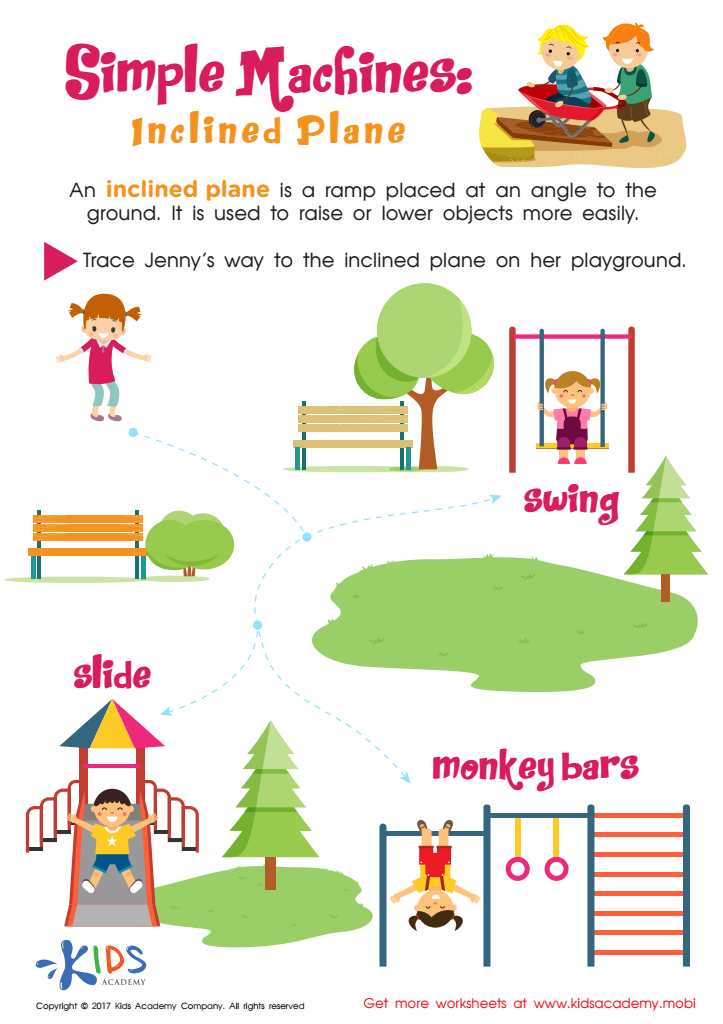

Simple Machines Inclined Plane Worksheet
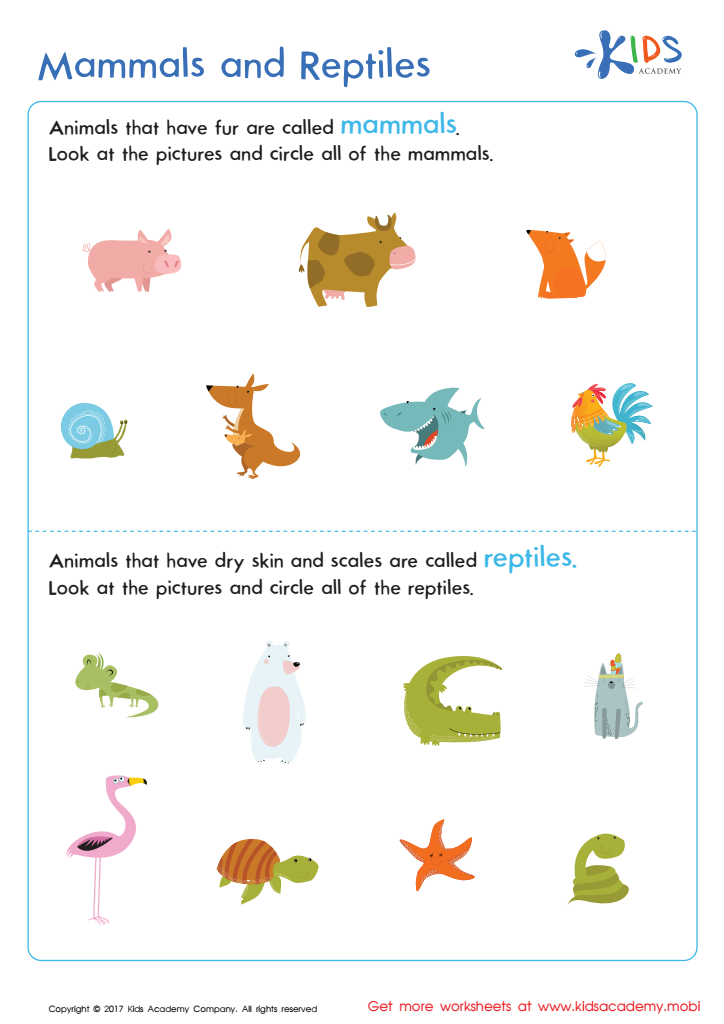

Mammals and Reptiles Worksheet
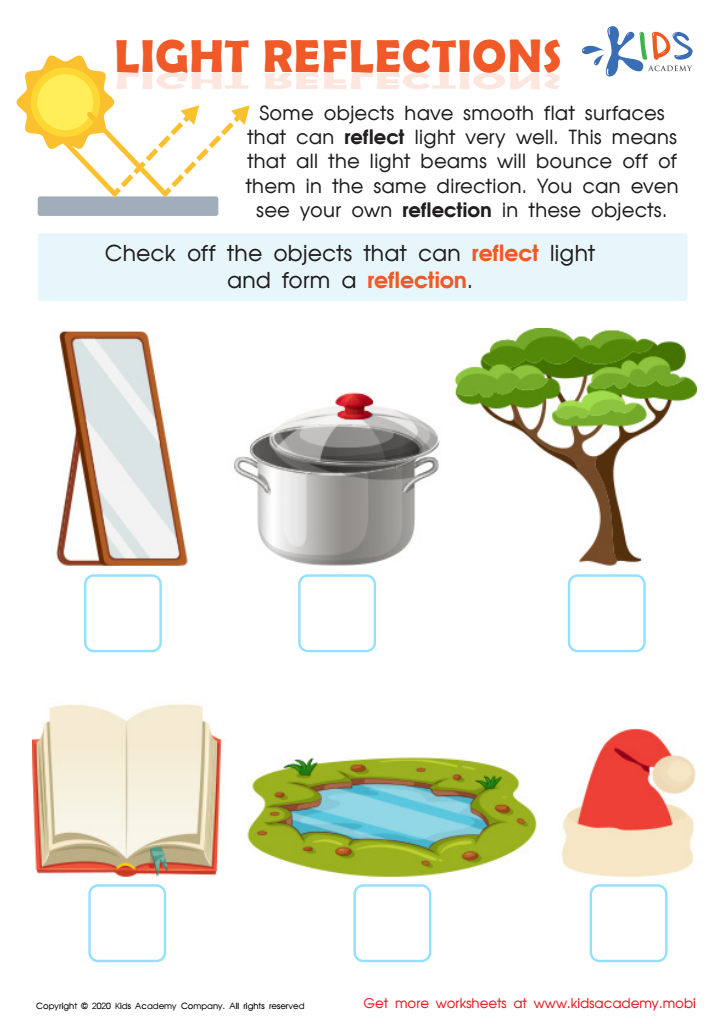

Light Reflections Worksheet
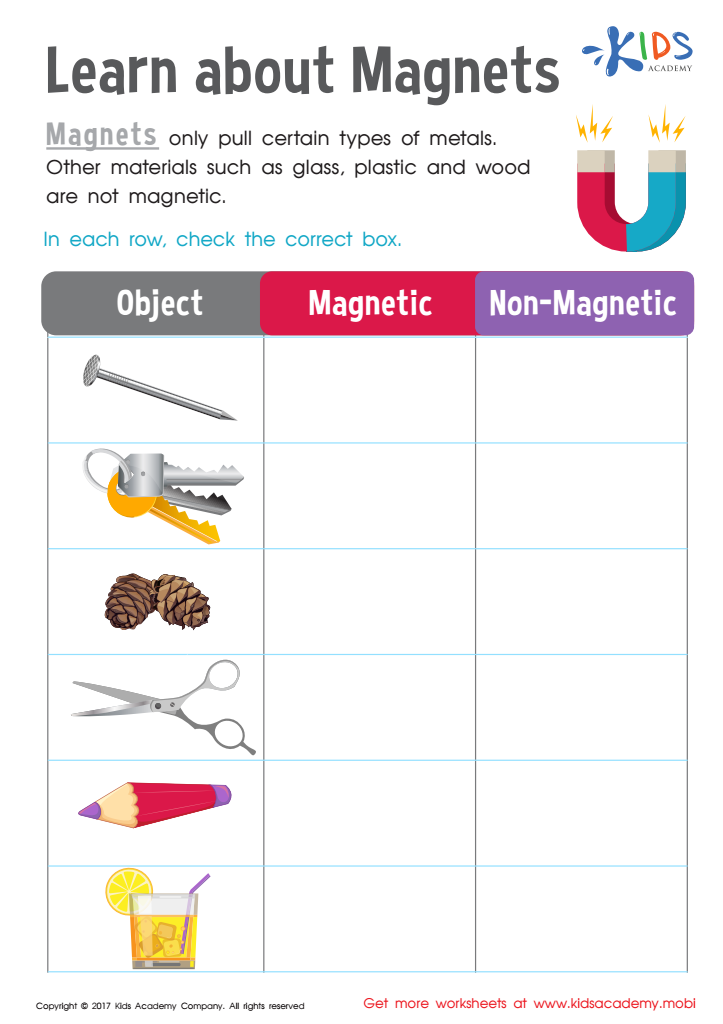

Magnetic Or Not Worksheet
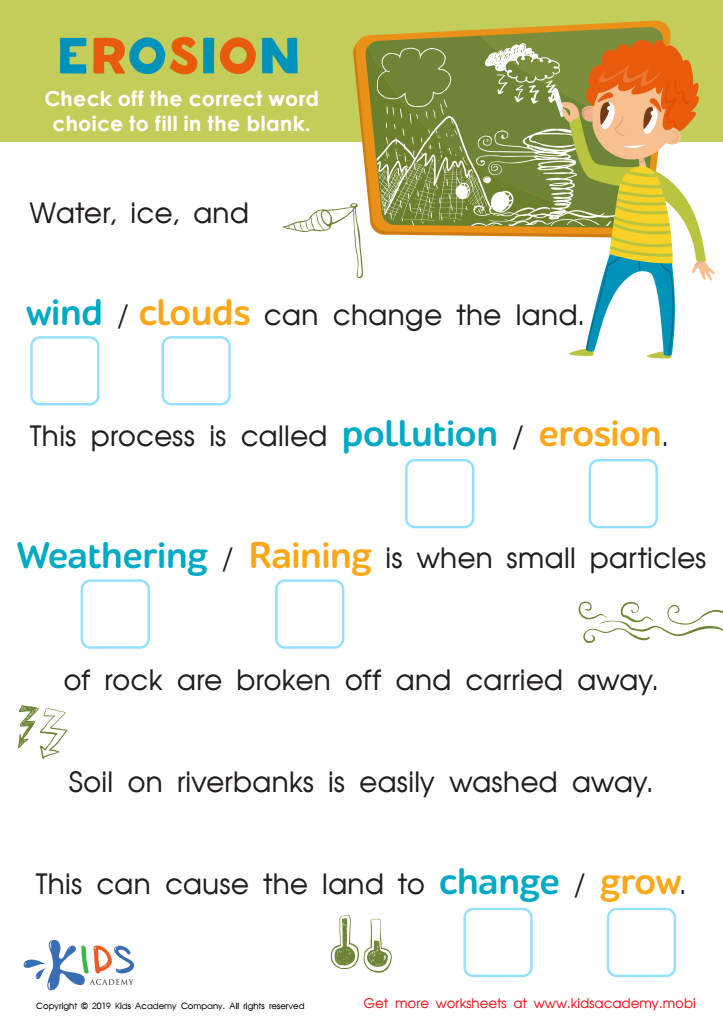

Erosion Worksheet
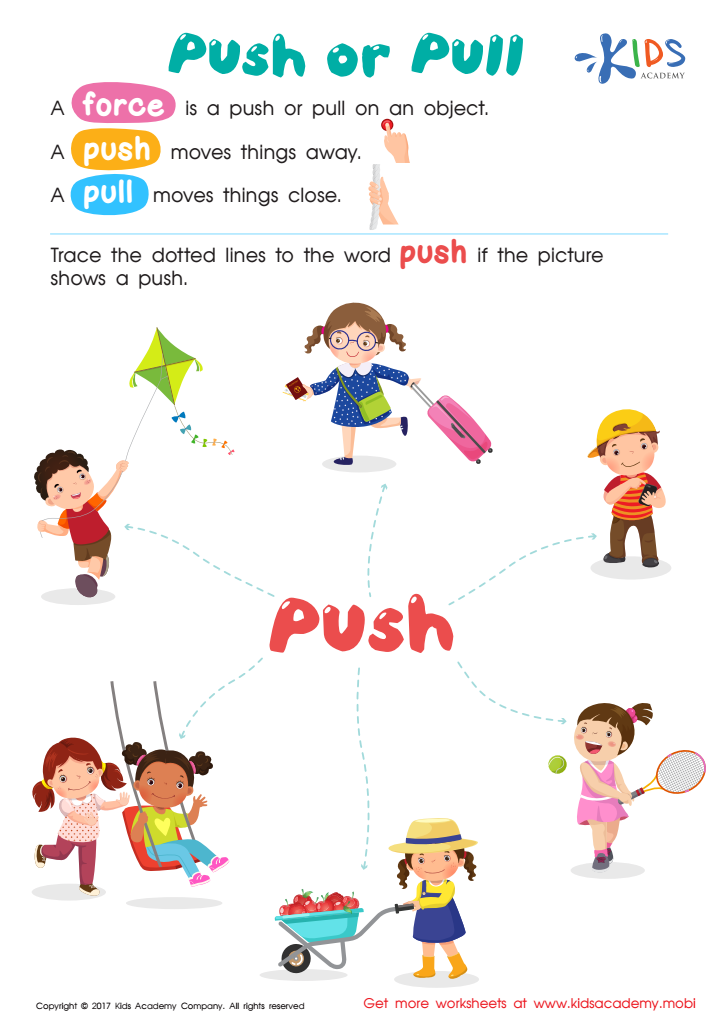

Push or Pull Worksheet
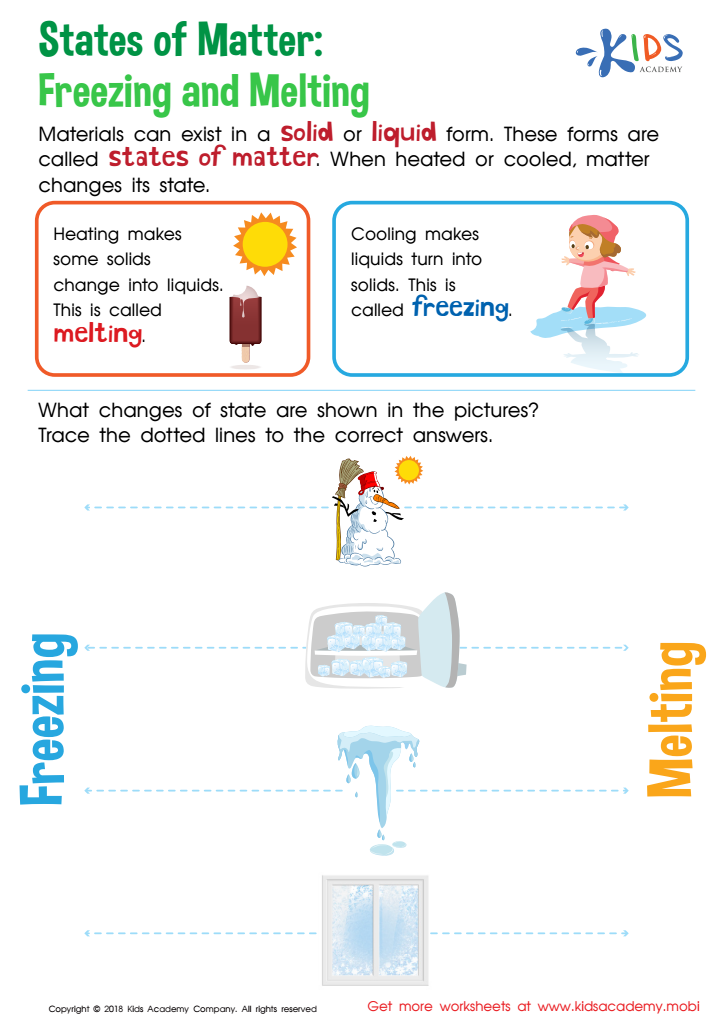

States of Matter: Freezing and Melting Worksheet
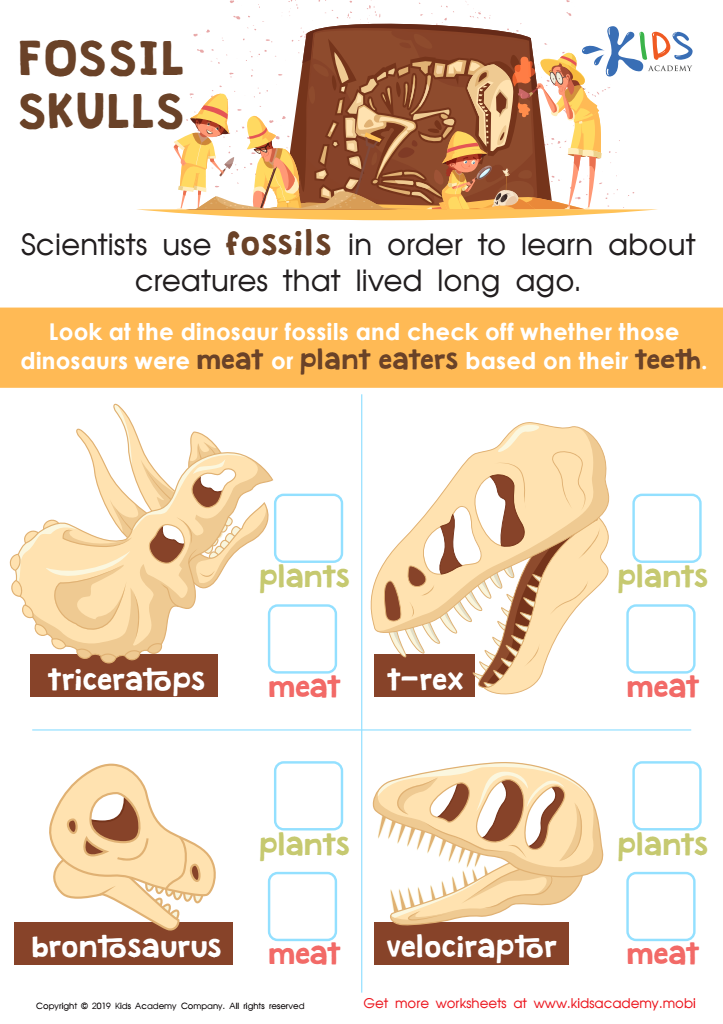

Fossil Skulls Worksheet
Enhancing observational skills in children aged 7-8 is essential for their cognitive and socio-emotional development. At this stage, children are naturally curious, and fine-tuning their ability to observe the world around them can significantly boost their learning and problem-solving abilities. For parents and teachers, focusing on these skills helps children become more attentive, detailed, and analytical thinkers. Children with strong observational skills can notice subtle changes, patterns, and details in their environment, which is foundational for scientific inquiry and critical thinking.
In the context of normal science, these skills enable children to engage more deeply with experiments and natural phenomena. By encouraging careful observation, adults help children gain a better understanding of scientific concepts like cause and effect, classification, and the properties of different materials. Moreover, observational skills support language development as children describe what they see and experience, improving both their vocabulary and literacy skills.
Beyond academics, enhanced observation promotes empathy and social awareness by helping children pick up on social cues and better understand the feelings and reactions of others. Consequently, fostering observational skills empowers children to become more effective learners and more perceptive, compassionate individuals, making it a crucial focus for both parents and teachers.
 Assign to My Students
Assign to My Students






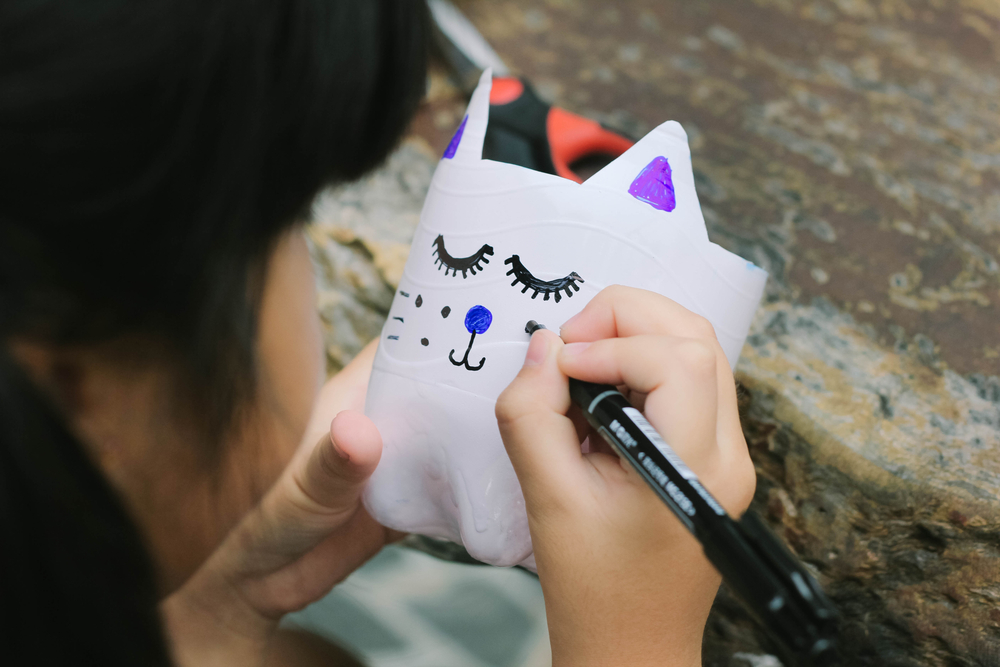


%20(1).jpg)









